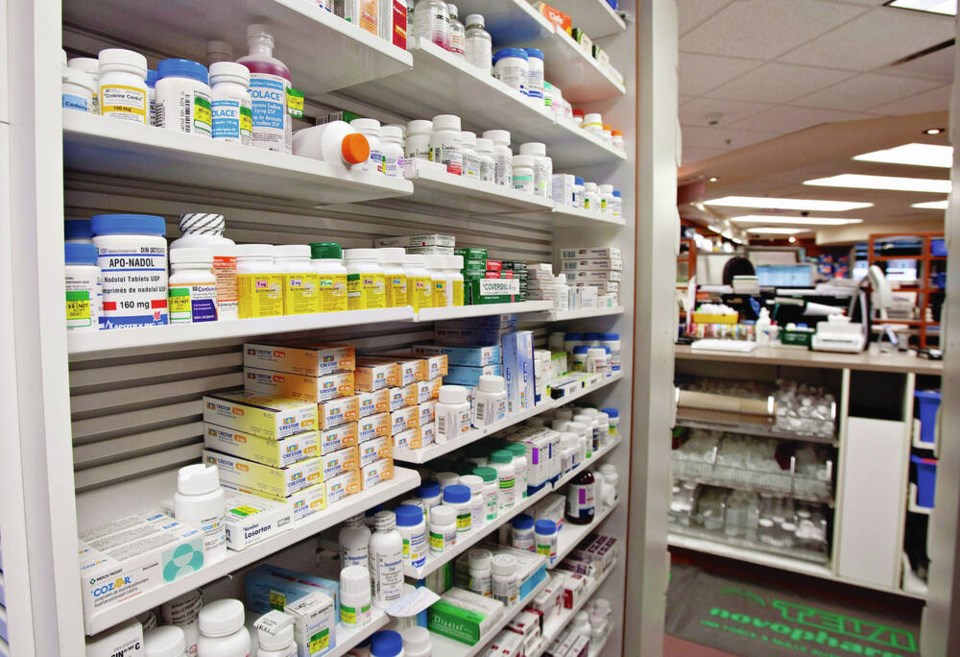One of the biggest challenges facing our public health-care system is the emergence of enormously expensive new drugs for rare diseases. These can cost anywhere from $300,000 for a one-time treatment to $2 million every year throughout the patient’s life.
Since many of these rare diseases are present at birth, successfully treating a patient can often mean a lifelong course of medication. If we’re talking a $2 million-a-year drug and the patient enjoys an average lifespan, the cost in today’s dollars would be around $164 million.
That’s 10 per cent of the province’s entire Pharmacare budget. Spent on one person.
Now it hasn’t come to that. Yet. The $2-million figure is at the top end of the scale. Very few patients will get those drugs.
And “rare disease” translates into an incidence of less than one person per 100,000. In sa国际传媒, that means about 50 people.
Moreover, these are all relatively new medications. We haven’t had a lifetime of paying for them.
Even so, we already spend more on drugs than all but three of 32 developed countries.
How our country deals with this emerging crisis is of vital importance.
Part of the problem is that when provincial health ministries negotiate prices with drug firms, the industry insists on confidentiality agreements. This so-called salami tactic enables big pharma to slice and dice the Canadian scene into 10 separate markets, each unaware of what the others paid.
Part is also due to the fact that drug companies refuse to divulge their research and development costs, so there’s no way of knowing what a fair deal would look like.
The industry, of course, points out, fairly, that since these are rare diseases, they need high price tags to offset the relatively small number of customers. But just how much of this is justified we don’t know.
Enter the Patented Medicines Prices Review Board (PMPRB). This is a federally appointed board of experts whose job is to ensure, as best they can, that we’re not being scammed.
They look at new drugs arriving on the market, and recommend an upper price level.
Originally, the price calculation was done by computing an average price across a group of 13 comparable nations.
But the comparator group included the two countries with the highest drug prices, Switzerland and the U.S. That drove up the overall average.
So, two years ago, the PMPRB recommended dumping the U.S. and Switzerland from their calculations. The board also proposed adopting a cost/benefit measure, in effect requiring proof that the drugs on offer were worth paying for in terms of health benefits. A simple proposition, you might think.
But enter former federal health minister Patty Hajdu. Last June, after extreme pressure from the industry and the offer of a $1-billion bribe in exchange for dumping the PMPRB recommendations, Hajdu announced a deferral of the new regime until Jan. 1.
This was the third time in a row Hajdu had granted such a deferral. Her excuse this time was that the industry needed breathing space while it searched for new COVID-19 vaccines.
Enter the current occupant of that worthless office, Jean-Yves Duclos. Just two days before the new regime was due to kick in, Duclos announced yet another delay, this time until July 1.
His excuse? Same as before: “To provide additional time for impacted stakeholders, including industry, governments, and other parties … to focus their efforts on responding to the unprecedented challenges presented by the COVID-19 pandemic.”
OK. Give AstraZeneca, Moderna and Johnson & Johnson a break. But there are more than 100 major pharmaceutical countries, worldwide. Do they all need a break?
It’s perfectly clear what’s going on. Ottawa’s family jewels box is empty.
Not too far down the road, we’ll all pay for this chickening out.



